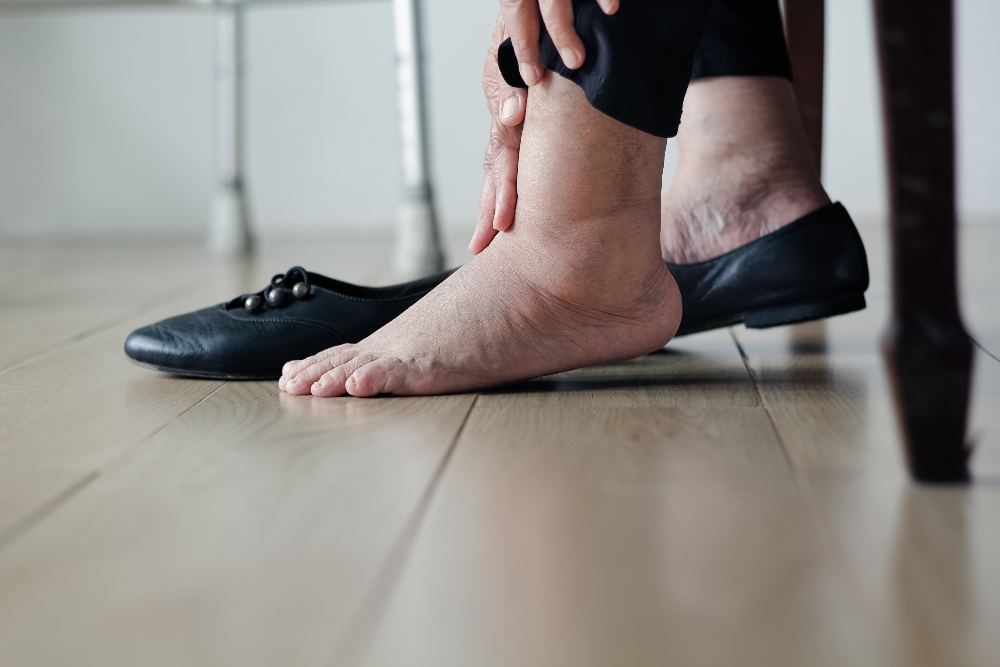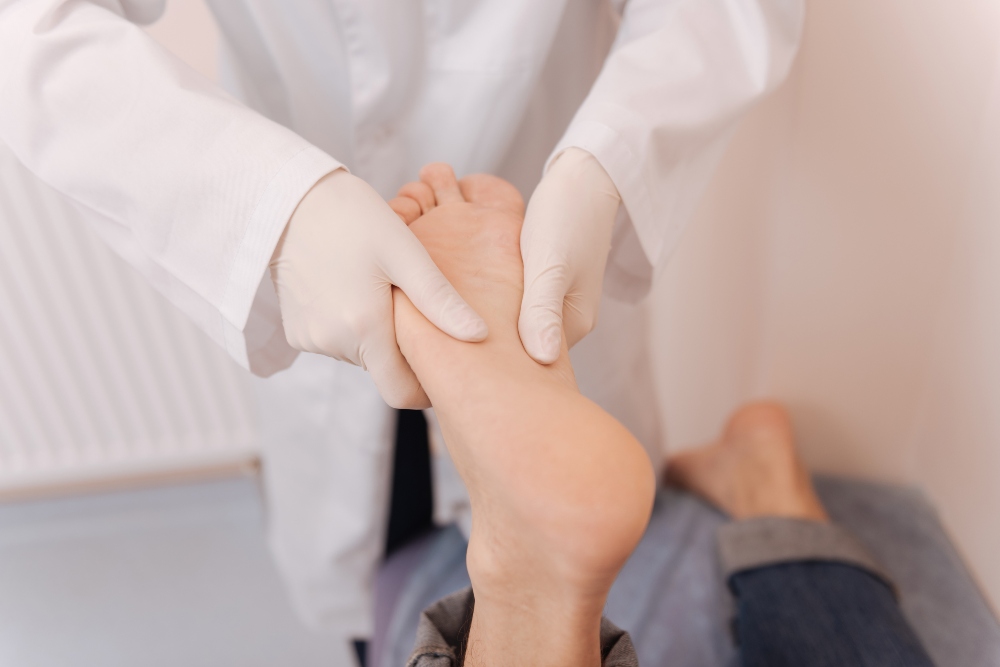As body mass index (BMI) increases, so too do the odds of foot pain, according to one reputable study published on PMC, the US National Library of Medicine.
Simply put, obese people are more likely to experience foot pain than those who maintain a healthy weight. Why?

Just one extra pound above your ideal weight can increase the pressure on your ankles and feet by as much as eight pounds, according to the American College of Foot & Ankle Surgeons.
The more weight your ankles must bear, the more stress your soft tissues, joints, and bones experience. In fact, this increased pressure can lead to a number of foot and ankle problems:
Obese individuals are more likely to experience foot stress fractures.
Foot stress fractures are very tiny cracks in your bones and can form almost anywhere, from your toes to your heel. They often occur when foot muscles can no longer withstand the impact of high pressure or shock— an issue faced by more than just runners! Obese individuals have increased risk of getting fractures too.
For those carrying excessive pounds, the extra load of their weight will increase the intensity of impact— more easily fracturing the bone.
Sometimes it’s hard for the obese to discern if they have a stress fracture because one of the symptoms is foot swelling, or edema, which can be another common problem for overweight people or those with poor circulation. Learn more about foot stress fractures by reading our other blog.
Obese individuals often suffer from foot flattening.
One study found that obese people often have flatter feet than those at a healthy weight— and that the pain is most often connected with excess plantar pressure.
Flat foot is often the result of genetics or injury, a problem for many who spend extended time barefoot or without proper arch support. Those who are obese can suffer from slow-building foot flattening and often need specialized, supportive footwear to stop the problem from worsening and find relief.

Unfortunately, because overweight persons often experience swelling, they often opt to wear flip-flops or open-toed shoes. But these unsupportive shoes can make it worse! Read these tips for finding sandals with good arch support.
Obese individuals are likely to experience plantar heel pain.
Plantar heel pain is strongly associated with increasing body mass index, according to this NCBI study.
What’s plantar heel pain? The plantar fascia is a ligament in the foot that can become inflamed by strain or damage. In fact, Plantar Fasciitis is the most common cause of heel discomfort.
The excess weight carried by obese individuals can cause the ligament stress, and result in a stabbing sensation around the bottom of the foot near the heel. Like those with flat foot, shoes with high arch support can help to alleviate the pain, but the best thing an overweight person can do to reduce the stress and allow the ligament to heal is to remove pressure from the injury, by shedding the excess, heavy body fat.
Obese individuals are at high risk for developing diabetic foot problems.
Those with obesity concerns are often at higher risk for developing type 1 or 2 diabetes; in fact, obesity is the leading risk factor for type 2.

If not managed properly, high blood glucose levels can result in neuropathy, or damage to the nerves in extremities. The nerve damage often means that these people can’t feel pain in their feet, oftentimes neglecting sores or infections.
Connecting back to the first point of this article, lack of feeling in your feet can result in poor coordination, leading to more falls, injuries, and fractures too. Here are some helpful foot care tips for preventing diabetic foot issues.
Alleviate the Stress
For many obese people, proper weight control is the answer to reducing foot pain. One of the biggest changes you can make is to your diet. Learn more about how proper nutrition can benefit your feet and ankles.
A podiatrist can help alleviate some of the stress on your ankles and feet with proper, supportive footwear and custom orthotics. For those with medical conditions related to weight problems— like diabetes— a foot specialist can help to advise and monitor foot-related symptoms as well.
Concerned about an obesity-related foot problem? Make a quick appointment with a doctor or give us a call at 239.936.5400, today.
Categorized in: Blog